Cash is king, as they say. Well, as they used to say. The emergence of cashless payments has become so commonplace in Singapore that paying for anything with cash has become a rare sight. Even hawkers who were largely cash-only merchants have started taking payments through PayNow transfers and RFID scans — the “payWave” payments we’re all too familiar with.
But all new opportunities come with an abundance of new threats. What can we do to protect ourselves and our loved ones from nefarious RFID thieves? RFID wallets might just be the answer.
What is RFID?
Radio-frequency identification (RFID) refers to a technology whereby data is secured and encoded into RFID tags or smart labels. These tags and labels are transmitted to an RFID reader, which unscrambles the radio waves to identify the data and process “transactions”. In loose terms, RFID tags function as a lock for stored data and RFID readers “unlock” that data when users make contact with a scanner.
In reality, we’re surrounded by RFID technology in our daily lives. Credit cards, access cards to condominiums/offices, and even our passports use RFID technology for touchless convenience. Look out for the sideways Wi-Fi symbol on credit cards, or the biometric symbol (a circle within a rectangle) adorning Singapore passport covers.

How Do RFID Wallets Work?
The modern pickpocket no longer relies on sleight of hand but portable RFID scanners instead. These enable electronic pickpockets to steal credit card details or personal data kept in your wallet by simply walking past you.
You might think this all sounds like some elaborate heist scheme from the likes of Ocean’s or Now You See Me. On the contrary, RFID skimmers are highly advanced, and these electronic pickpockets have no need for misdirection to commit fraud.
Given all that, you might be wondering, “How does an RFID wallet work to keep me safe? Is it made of some special material?” In most instances, RFID wallets have a layer of protection that jams or prevents electrical signals outside a certain allowed distance from making contact. Think of it as a vault with metre-thick concrete walls, keeping your information locked safely inside!

Reasons to Get an RFID Wallet
Protect your information and money
Solutions to counteract RFID fraud and theft have come up aplenty in the market, but none as simple or elegant as an RFID-blocking wallet. Wallets and passport holders are big targets for electronic pickpockets. An RFID blocking wallet can stop these attempts in their tracks and keep your data safe during your daily commutes or global travels.
Enjoy peace of mind
Another huge reason to upgrade to an RFID wallet is the peace of mind it provides. We’ve heard countless horror stories of people being pickpocketed overseas. Imagine if those attempts were now subtler and tougher to detect. You might grasp on tightly to your valuables for extra security in a crowded MRT train in Singapore, but the true danger lies in the stranger next to you stealing your data with no contact whatsoever. Circumvent all that with a simple upgrade to your wallet!

Gnome & Bow: Where Style Meets Functionality
Considering the perks of an RFID wallet, but don’t know where to start? At Gnome & Bow, you won’t have to choose between form or functionality. Crafted with a special anti-theft RFID blocking lining that is slim and durable, neither style nor security is compromised in the design of our RFID leather goods. Our RFID guide also provides you with a starting point if you want to learn more about protecting yourself and your loved ones from fraud.
Take your pick from a plethora of options, with everything from RFID wallets and card holders to passport notebook holders and crossbody slings. Set forth on your adventures in Singapore and beyond with our tried and tested RFID wallets protecting you from fraud or identity theft. You can even personalise them with a message or initials to make the perfect gift! Shop online now and check out Gnome & Bow’s collection of modern RFID leather goods today.






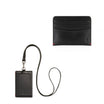

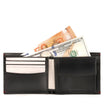
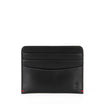
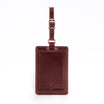


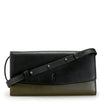





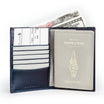


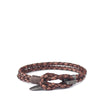
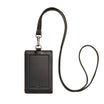
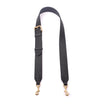
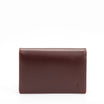







Leave a comment
This site is protected by hCaptcha and the hCaptcha Privacy Policy and Terms of Service apply.